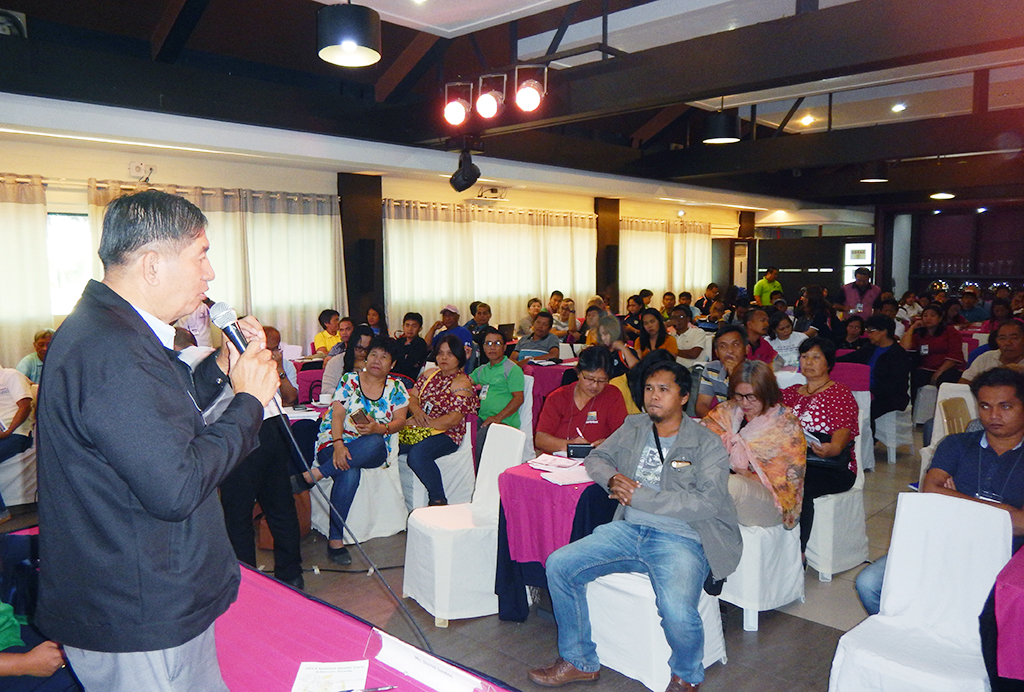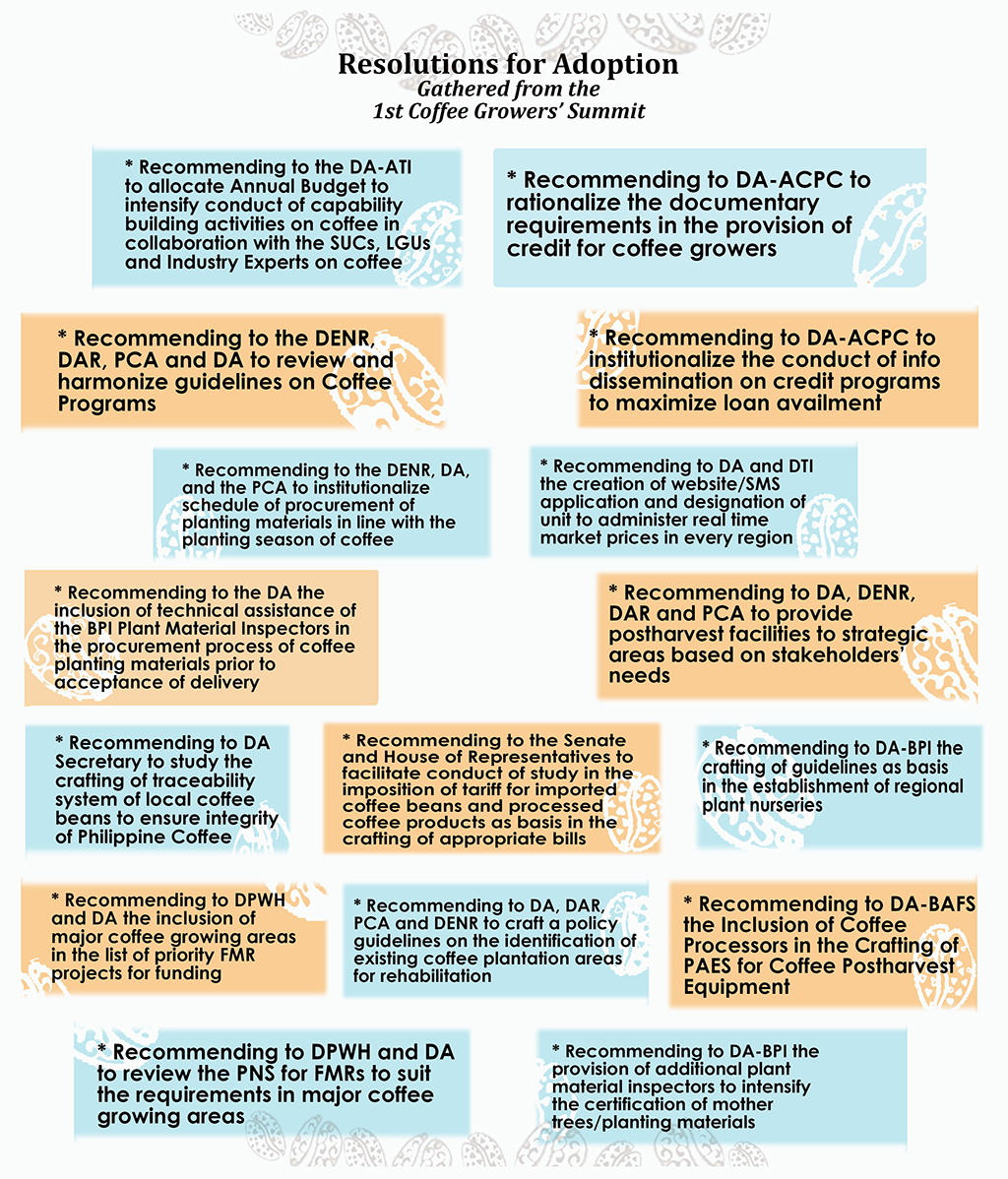
More than a hundred local coffee growers from different regions gathered in a summit on July 3 to 5, 2018 in General Santos City to understand the current state of the industry and come up with appropriate policy recommendations that would improve the industry across the value chain.
Funded by the Philippine Council for Agriculture and Fisheries (PCAF) and initiated by National Sectoral and Strategic Concerns Committees (NSSCCs)-Committee on Commercial Crops (ComCrops)-Coffee Industry Development Sub-Committee, the first National Coffee Growers’ Summit involved the coffee farmers to establish a consensus output to create implementation strategies to increase the volume of production, facilitate easy access to credit and insurance, and trade and market.
“We want to have an open discussion with our local coffee farmers about coffee production and postharvest. In this event, we want to give importance to the producers so they can express their sentiments and give suggestions,” said ComCrops Committee Chairperson David Santos.
“As this summit’s theme, “Forging Stronger Ties Towards Sustainable Coffee Industry through Public-Private partnership”, we also want to involve the community not only the public and private in forging stronger ties towards sustainable coffee industry,” said Department of Agriculture (DA) Undersecretary for High Value Crops and Rural Credit Evelyn Laviña.
“Dahil kayo ang nakaka-alam ng kailangan ninyo, kailangang sabihin ninyo ito sa amin, then PCAF can already do the policy, and we can work together. It is not only the government but you have also the responsibility,” Usec. Laviña added.
The government presented its projects like the National Color-coded Map, Coffee Roadmap, and different researches, other government departments and agencies presented programs and projects that would help the coffee farmers.
The participants also had the chance to raise questions and share inputs during the open forum.
The coffee farmers raised the need for trainings on the open forum and plenary sessions. The training will focus on agri-entrepreneurship, production and postharvest maintenance.
Some of the inquiries and concerns were about the procurement processes, delivery of coffee seedlings, irrigation, traders’ pricing, subsidy credits, harmonization of data, correct use of PSA in determining coffee measuring units, and availability of trainings for coffee farmers.
Aside from the presentations on the government’s initiative to help the industry, there were also sessions divided into four workshops wherein the participants have identified issues and concerns on inputs, production, postharvest and processing, and marketing.

Out of the 16 policy resolutions adopted, the recommendation to the DA-Agricultural Training Institute to allocate an annual budget to intensify the conduct of capability building activities on coffee in collaboration with the state universities and colleges, local government units, and industry experts, will be given priority in order to help strengthen the industry.
In an interview with PCAF’s Knowledge Management Team, Patricio Pasigian, one of the participants from Bugkalot Coffee Growers Multipurpose Cooperative in Nueva Vizcaya shared that he was thankful to be part of the Summit because he wants to know the different programs and projects of the government for the coffee farmers like him.
“Nalaman ko yung mga government agencies na pwedeng makatulong sa amin. Nalaman ko rin kung ano yung mga tamang proseso at mga kailangang i-comply na requirements sa pagapaparehistro ng quality na seedlings. Tamang pagtingin ng quality ng kape mula seedlings hanggang sa pagpoproseso. Ishe-share ko ito sa aking mga kasamahan sa koop,” Pasigian added. — JC.











